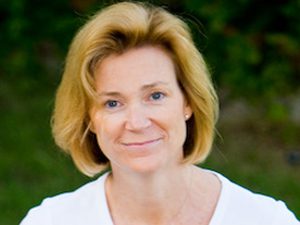Polly Moore
Neuroscientist

Dr. Polly Moore, Director of Sleep Research at California Clinical Trials in San Diego, has been fascinated with sleep since her childhood, and professionally dedicated to it for more than 20 years. What started out as a youthful curiosity about dreams became a passionate focus of study at Mount Holyoke College, where she received a B.A. in psychobiology.
While pursuing her doctorate in neuroscience at UCLA, she studied the devastating results of sleep loss as well as sleep’s delicate interaction with psychiatric states and with medical illnesses, including cancer. As a neuroscientist focusing on sleep research and disorders, Dr. Moore has spent more than two decades working in sleep clinics and academic institutions, including Nebraska Wesleyan University (Lincoln, NE), University of California-San Diego Cancer Center (San Diego, CA), University of San Diego, and the Scripps Clinic Sleep Center in La Jolla, CA.
With so much sleep-research experience, Dr. Moore never expected to struggle with her babies’ sleep. When her first child was born, she was surprised at how difficult is was to manage her newborn’s sleep, and how unpredictable the baby’s sleep schedule seemed to be. She consulted with pediatricians and infant-sleep books, but came away with only vague adages such as “babies sleep at random” or “babies know how to get all the sleep they need.” Although she was disheartened by the lack of concrete advice, she too shrugged it off as something that would naturally work itself out.
And then Dr. Moore had her “light-bulb moment”: She began noticing a behavioral pattern when her daughter was about 4 months old—the baby was showing signs of sleepiness almost exactly 90 minutes after waking in the morning. Astonished at first, Dr. Moore soon realized she had seen this behavior before—both in her daughter and in her extensive research work. She knew this 90-minute timing was no coincidence, as it mirrored the rhythms of the Basic Rest and Activity Cycle (BRAC), a well documented body clock that governs our wakefulness throughout the day.
Armed with her knowledge of the BRAC, Dr. Moore’s epiphany prompted her to follow this cycle in helping her daughter Maddie’s sleep: She began to lay Maddie down for naps after each 90-minute period of wakefulness. Before long, Maddie began to sleep better, longer and more predictably. As a mother, Dr. Moore was delighted that she finally felt in control; as a scientist, she realized she’d discovered one of the best-kept secrets in baby care.
Videos for this expert
-

The Natural Baby Sleep Solution
We know babies tend to sleep… a lot. But did you know that following your child’s natural rhythms can result in more restful nights for you? So, what are your baby’s sleep requirements within that first year of life? What common mistakes are most parents making when it comes their child’s sleep schedule? Today, you’ll… Continue Reading





